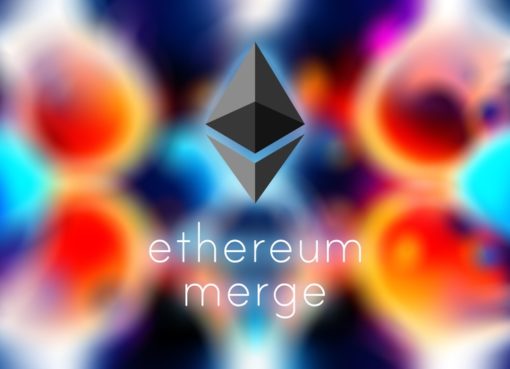Opinion by: Ross Shemeliak, co-founder and chief operating officer of Stobox
The Trump administration is pushing a much-revived policy trajectory, marked by tariffs and sanctions that aim to reshore production. Despite exemptions favorable to technology, this dramatic turnaround may seem like a case of the White House treating global trade as its playground. The president’s tariff agenda is fracturing supply chains overnight and disregarding long-standing economic rules.
This latent, chaotic agenda also sees the quiet emergence of a new infrastructure in which blockchain is taking on a fresh role. Insofar as it is not purely focused on decentralization, the technology is geopolitically resilient. With global businesses, especially small and medium enterprises, increasingly pushed toward blockchain, we are witnessing a global economic map redrawing into one centered on Real-World Assets tokenization and stablecoins.
Secondary markets for tokenized trade assets
There are few winners in a trade war. Sanctions and restrictions disrupt international economic rules, and liquidity is one of the first victims. Companies struggle to finance their operations, while risk management models force banks to step back. With the fragmented economic order, a new era in which secondary markets for tokenized trade assets are prevalent is being ushered in.
These tokenized real-world assets — receivables, commodities or shopping slots, for example — can be fractionalized and sold in global permissioned marketplaces. The resulting access to capital outside of sanctioned corridors grants companies liquidity. As sanctions reduce liquidity, tokenization creates it. Within the economic disruption from the US, there is a moment of opportunity for tokenization.
Onchain provenance
Another implication of sanctions relates to the existential significance of transparency and traceability. Traceability means companies importing goods must prove their origin and routing or risk secondary sanctions. Tokenization may be in a position to benefit.
Recent: US exchanges bet big on crypto derivatives amid tariff turbulence
This owes itself to tokenized assets having immutable metadata — certificates of origin, shipping routes, customs approvals. The result is real-time, tamper-proof compliance, which far outstrips outdated spreadsheets and siloed databases. Manufacturers can directly onchain verify that every component used — down to the source of its raw materials — fully complies with sanctions.
The peril of sanctions extends yet further, as trust in banks is eroded. Exiting high-risk corridors, banks leave companies without neutral payment intermediaries. DeFi Infrastructure and tokenized Escrow represent meaningful options for rebuilding trust without banks. Tokenized Escrow via smart contracts enables milestone-based payments to be enforced by code, not banks. International deals can be conducted without traditional clearing systems while maintaining trust and accountability. When sanctions gnaw away at trust in banks, code can step in as the counterparty.
Stablecoins are a new artery for sanction-neutral payments
Stablecoins do more still. The technology no longer just enables DeFi; it facilitates parallel international trade. While this may seem like the remit of the theoretical, it is happening. As fiat rails fall under geopolitical pressure, companies from Latin America to Southeast Asia adopt stablecoin-based invoicing to keep commerce alive.
While stablecoins began as something of a fintech novelty, the disruption of sanctions to SWIFT and frozen cross-border transfers means that stablecoins like USDC, USDT, and even EURC are emerging as financial lifelines. A shadow banking system has come into being for the sanctioned world. Faster, cheaper, borderless, this offers three serious advantages:
-
Payments are processed 24/7, without banks or FX intermediaries.
-
Counterparties can settle in neutral, dollar-pegged assets — outside traditional financial rails.
-
Smart contracts and stablecoins enable programmable, conditional payments tied to compliance checkpoints.
Neutral blockchain hubs
The deepening fractures in geopolitics are leading to further opportunities for digital infrastructure. With supply chains increasingly politicized, the door is opening to greater use of tokenization by creating “compliance-first” trade hubs.
This is significant because the trade hubs can be located in neutral countries like Singapore, the UAE and Turkey. These hubs tokenize ports, warehouses and logistics routes. As a result, they embed compliance and origin data directly into the asset lifecycle. Companies seeking a trustworthy alternative in a fraught geopolitical environment can turn to neutral blockchain hubs.
Tokenized smart contracts
Sanctions carry disadvantages for legacy contracts — these agreements are static, complex to amend, and dependent on intermediaries — and freeze when restrictions are hit. By contrast, the logic embedded in tokenized smart contracts offers more dynamic reactivity to regulatory shifts.
Let’s briefly consider an example — a European supplier tokenizes its invoice and programs the contract to release payment only if goods clear non-restricted jurisdictions. This level of programmable compliance, enabled by the technology, reduces legal risk, operational lag and cross-border tension.
Building infrastructure from uncertainty
An unprecedented, challenging economic environment is emerging from US sanctions, which has painful implications for financial institutions and trade partners. As traditional infrastructure is broken, tokenization offers the possibility to build a new one.
On the surface, tokenization and stablecoins are about efficiency and transparency. Realizing the full benefits requires us to look deeper — they are becoming foundational layers in a parallel global economy. This new order adapts faster than banks, negotiates better than lawyers, and operates beyond the reach of sanctions.
Blockchain does far more than simply record trade. It enforces geopolitical logic at the asset level. With the next economic map being drawn onchain, tokenization’s broad benefits are clear.
Opinion by: Ross Shemeliak, co-founder and chief operating officer of Stobox.
This article is for general information purposes and is not intended to be and should not be taken as legal or investment advice. The views, thoughts, and opinions expressed here are the author’s alone and do not necessarily reflect or represent the views and opinions of Cryptox.




